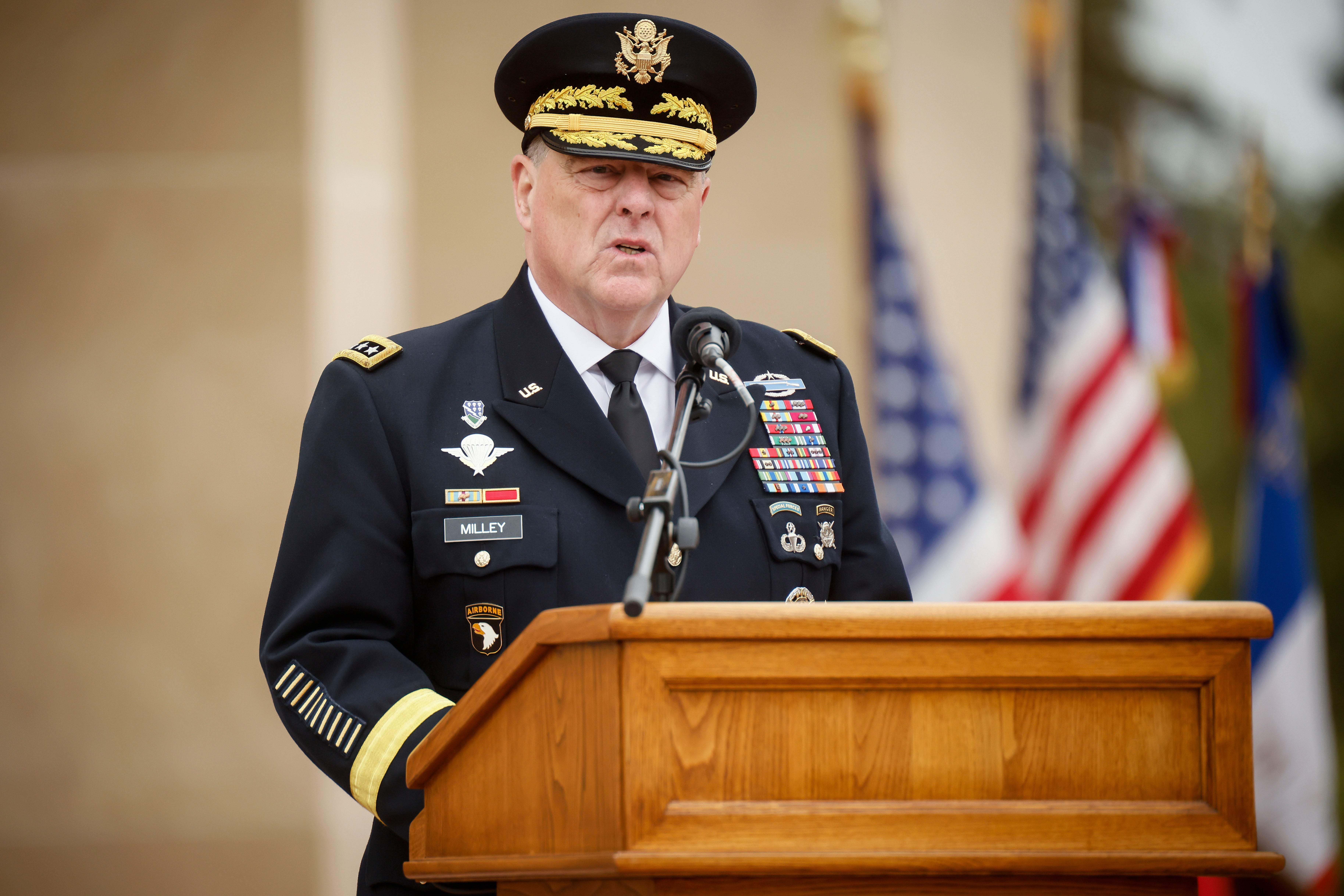The US is considering providing cluster munitions to Ukraine, says America's top military officer
The top American military officer says the U.S. is considering providing cluster munitions to Ukraine

Your support helps us to tell the story
From reproductive rights to climate change to Big Tech, The Independent is on the ground when the story is developing. Whether it's investigating the financials of Elon Musk's pro-Trump PAC or producing our latest documentary, 'The A Word', which shines a light on the American women fighting for reproductive rights, we know how important it is to parse out the facts from the messaging.
At such a critical moment in US history, we need reporters on the ground. Your donation allows us to keep sending journalists to speak to both sides of the story.
The Independent is trusted by Americans across the entire political spectrum. And unlike many other quality news outlets, we choose not to lock Americans out of our reporting and analysis with paywalls. We believe quality journalism should be available to everyone, paid for by those who can afford it.
Your support makes all the difference.The United States is considering providing cluster munitions to Ukraine, the top American military officer said Friday.
Army Gen. Mark Milley, chairman of the Joint Chiefs of Staff, said the U.S. has been thinking about providing the munitions “for a long time.” He noted that Russian troops are using them on the battlefield in Ukraine and that Ukrainian forces have received cluster bombs from other allies and have deployed the arms.
Milley said at the National Press Club that discussions are continuing. “The Ukrainians have asked for it, other European countries have provided some of that, the Russians are using it,” Milley said. “There’s a decision making process ongoing.”
He also dismissed concerns that Ukraine's counteroffensive is going too slowly. Miller said he thought the initial campaign would take six weeks to 10 weeks. “It’s going to be very difficult. It’s going to be very long,” Milley said. “No one should have any illusions about any of that.”
The deliberations on whether to provide Ukraine cluster munitions come as some U.S. officials are concerned about the slow pace of that long-anticipated counteroffensive. Any decision to provide such arms would raise opposition from other allies and from humanitarian groups.
Cluster bombs are weapons that open in the air, releasing submunitions, or “bomblets,” that are dispersed over a large area and are intended to wreak destruction on multiple targets at once. The bombs can be delivered by planes, artillery and missiles, according to the International Committee of the Red Cross. The "bomblets'' have a high rate of failure to explode, up to 40% in some recent conflicts, according to the ICRC.
Proponents of banning cluster bombs say they kill indiscriminately and endanger civilians long after their use. Groups have raised alarms about Russia's use of the munitions in Ukraine
Most Western officials will not publicly say Ukraine’s counteroffensive is moving too slowly, but there is growing sentiment that Ukraine needs to seize on the weather, conditions on the ground and any impact that last weekend’s revolt may have on Russian military cohesion.
The Russian military will now have to absorb Wagner forces into its ranks and make command changes if Russian President Vladimir Putin pursues officials who may have been sympathetic to the mercenary group's founder, Yevgeny Prigozhin. Even before Prigozhin’s revolt the Russia military was grappling with logistics and morale challenges.
While the U.S. has emphasized that the timing and place of Ukraine’s efforts are solely its decision to make, there are concerns that Ukraine has not moved faster. For months the U.S. and Western allies have trained and equipped Ukrainian forces for the anticipated fight, yet many of those forces are not yet engaged in combat.
Ukraine’s advance has been slowed by dense minefields and other obstacles defending Russian lines, according to a U.S. official, but the Biden administration has provided equipment to help overcome that.
___
Baldor reported from Parris Island, South Carolina.